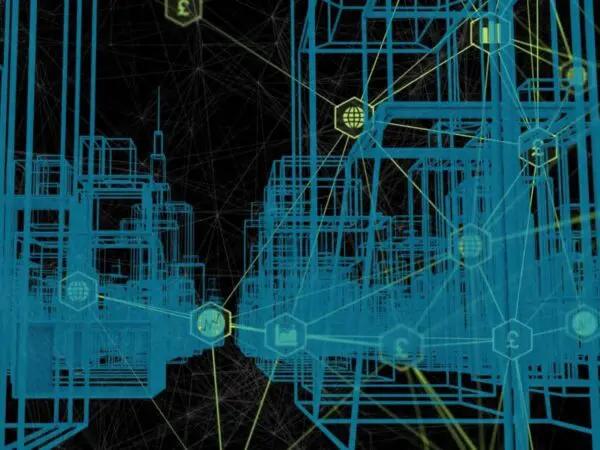
Amsterdam, Netherlands
Modern Toolbox for Spatial and Functional Data
When:
13 July - 17 July 2026
Credits:
3 EC
Read more
Social Sciences & Artificial Intelligence Summer Course
When:
29 June - 10 July 2026
School:
Institution:
Nottingham Trent University
City:
Country:
Language:
English
Credits:
5 EC
Fee:
1220 GBP

Artificial intelligence is transforming industries worldwide, from healthcare to finance, from creative industries to scientific research. At the heart of this revolution lies deep learning — artificial neural networks that learn complex patterns from data.
Take the mystery out of AI! This course combines conceptual understanding with practical skills. You will explore how artificial neural networks work, from individual neurons to the deep architectures that power large language models like ChatGPT. Through hands-on coding in Python, you will build and train models on real datasets and develop the confidence to apply these techniques to new problems.
Content
• The AI Revolution, History and Current State of the Art: overview of contemporary AI technologies and their capabilities. We will trace the journey from AI's origins in the 1950s through periods of optimism and setbacks to today's breakthroughs. We will describe the role of artificial neural networks and deep learning in these developments and their major role in the current state of the art tools.
• Foundations of Neural Networks: We will explain how artificial neural networks work, covering artificial neurons, activation functions, and how networks learn through backpropagation. We will explore the mathematical principles behind training and the biological inspiration for artificial neural networks.
• Multilayer Networks for Classification: We will build and train multilayer perceptrons (MLPs) for classification tasks. We will cover loss functions, optimizers, overfitting, and regularisation techniques.
• Convolutional Neural Networks: We will introduce convolutional neural networks (CNNs) and their revolutionary impact on image recognition. We will work with real-world photographs and learn how these networks automatically detect features, edges, and patterns in visual data.
• Large Language Models and Transformers: We will explore the transformer architecture that powers modern large language models (LLMs) like ChatGPT. We will examine attention mechanisms and how these models process and generate human language, enabling applications from chatbots to content generation.
• Real-World Applications: We will take a comprehensive look at current and emerging AI applications across industries including healthcare, finance, creative arts, and scientific research. We will discuss responsible deployment, societal impacts, and future directions in the field
Mark Andrews - Associate Professor in Psychology
This course is ideal for any student with an interest in AI. No technical background is strictly required, just high-school level mathematics and a willingness to learn the code and theoretical aspects of modern AI. Coding and technical concepts are introduced accessibly for beginners
By the end of this module, you will understand the principles behind today's most exciting AI applications and have practical experience building and training neural networks yourself.
After studying this course, you should be able to:
1. Explain the fundamental principles of artificial neural networks, including how neurons combine inputs through weighted connections, the role of activation functions and backpropagation in learning.
2. Describe how different neural network architectures (MLPs, CNNs, transformers) are suited to different tasks, and discuss current applications including large language models and computer vision systems.
3. Describe the historical evolution of AI from the 1950s to the present day, explaining key developments that led to modern deep learning and their societal implications.
4. Implement and train neural network models using Python and PyTorch, working with real-world datasets for image classification tasks.
5. Evaluate neural network models through appropriate metrics, identify and address overfitting, and select suitable techniques for improving generalization.
6. Explore and understand the architectures used in modern AI systems including those powering large language models
Fee
1220 GBP, Apply and pay your tuition fee by 30 April 2026 and receive our Early-Bird discount of £100. Apply for two-courses and receive a £440 discount! Tuition fee includes course materials, field trips, our exciting social and cultural programme, Pink Plus Gym Membership, opportunity to take our new Sustainability in Practice Global Mobility module, support from our friendly team of student buddies, use of our GSS Hub with free hot drinks, and a trip to the beautiful university city of Liverpool and / or Cambridge
Fee
532 GBP, On-Campus accommodation for two-weeks in a single room with private bathroom on a self-catering basis
When:
29 June - 10 July 2026
School:
Institution:
Nottingham Trent University
Language:
English
Credits:
5 EC

Amsterdam, Netherlands
When:
13 July - 17 July 2026
Credits:
3 EC
Read more

Brno, Czechia
When:
12 July - 25 July 2026
Credits:
3 EC
Read more

Leuven, Belgium
When:
22 June - 03 July 2026
Credits:
6 EC
Read more